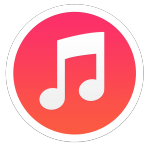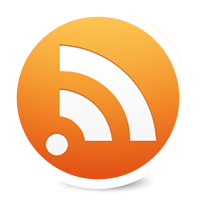 Dr. René Horcicka is the Director of the University of Portland’s Salzburg Center in Salzburg, Austria. He is an Academic Technology Roundtable Fellow with an interesting project on cultural geography titled “Creative Bridges – Acquiring Cultural Content through the use of Technology.”
Dr. René Horcicka is the Director of the University of Portland’s Salzburg Center in Salzburg, Austria. He is an Academic Technology Roundtable Fellow with an interesting project on cultural geography titled “Creative Bridges – Acquiring Cultural Content through the use of Technology.”
In this podcast, he talks with UP Tech Talk cohost Sam Williams on site in Salzburg about how to identify and communicate authentic cultural knowledge with the use of digital technology. Dr. Horcicka expects his UP students to produce a series of 3-5 minute videos which focus on their experiences in learning about the authentic culture of Salzburg and other parts of Europe.
“If you take a look at the things all tourists do in Salzburg,” Dr. Horcicka explains in this podcast. “You have a good idea of what industrial culture is.”
For example, The Sound of Music attracts hundreds of thousands of visitors each year. The students could question things that are presented in the Sound Of Music. They could interview locals with video cameras. How about the music? Do locals know the song Edelweiss? Is the Schnitzel with noodles something that anyone would eat here? Look behind the curtains and explore the authentic culture behind it….By doing this they [students] will be able to get closer to how Austrians in Salzburg live.
While students are studying abroad in Salzburg, they have the opportunity to go on many field trips. Dr. Horcicka’s course on cultural geography aims to equip his students with the tools to explore and understand cultural realms and to find creative ways to present authentic culture to a bigger audience. His hope is that better communication about authentic culture will foster better preservation of it.
Listen:
%CODE81%
Complete transcript available in MS Word format
Show Notes:
From Our Conversation:
Sam Williams: At the beginning of your course, you had them do a worksheet where they, you ask them about culture, I believe. Then, you’re going to do that again at the end?
Dr. Horcicka: Yes, this is one way for me to see how successful this overall course is, and also, part of the course, the ATR project. I did a survey at the beginning, with the twenty-seven students that are now participating in the course. In the survey, I was trying to figure out where they stand, actually, in culture knowledge. Questions that I’m asking in the survey is for example, “From which place region do you come from and how would you describe, characterize this place region? What makes it special and distinct to you?”
This is related to the students’ own culture, cultural realms, and from there, I want to know what does culture mean to the individual students. What elements they would say characterize and define their own culture. Then, we start more or less in Europe, so I want to know from the students what the most impressive culture realms and sites in Europe are that they experienced so far, and in which way they experienced these sites. Did they use any media and technology already to experience and learn about cultural sites, cities, regions, countries in Central Europe?
Sam Williams: Then you’re going to, so they’ve already done the first worksheet at the beginning, and then at the end, you’re going to be able to, after they’ve gone through your course and worked on their project, asking these same questions about their own culture, and see what kind of changes they might have and how they identify their culture. Is that correct?
Dr. Horcicka: This is one part, which is really important. I want to see what changed in the descriptions, also, of students talking about their own culture.
Sam Williams: Yeah.
Dr. Horcicka: What do they include in these descriptions? Do they include also physical features, elements, the weather, landscapes? Do they also include historical aspects? Do they include tangible cultural things, intangible cultural things such as, are they able to talk about culture in the broader context, in more detail and understand also differences between what is industry tourism, and what is authentic.
 Subscribe on iTunes
Subscribe on iTunes Subscribe to RSS feed
Subscribe to RSS feed